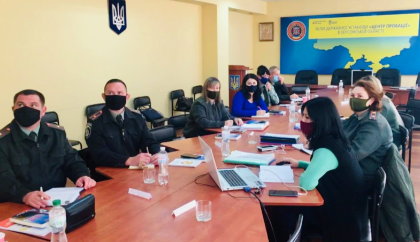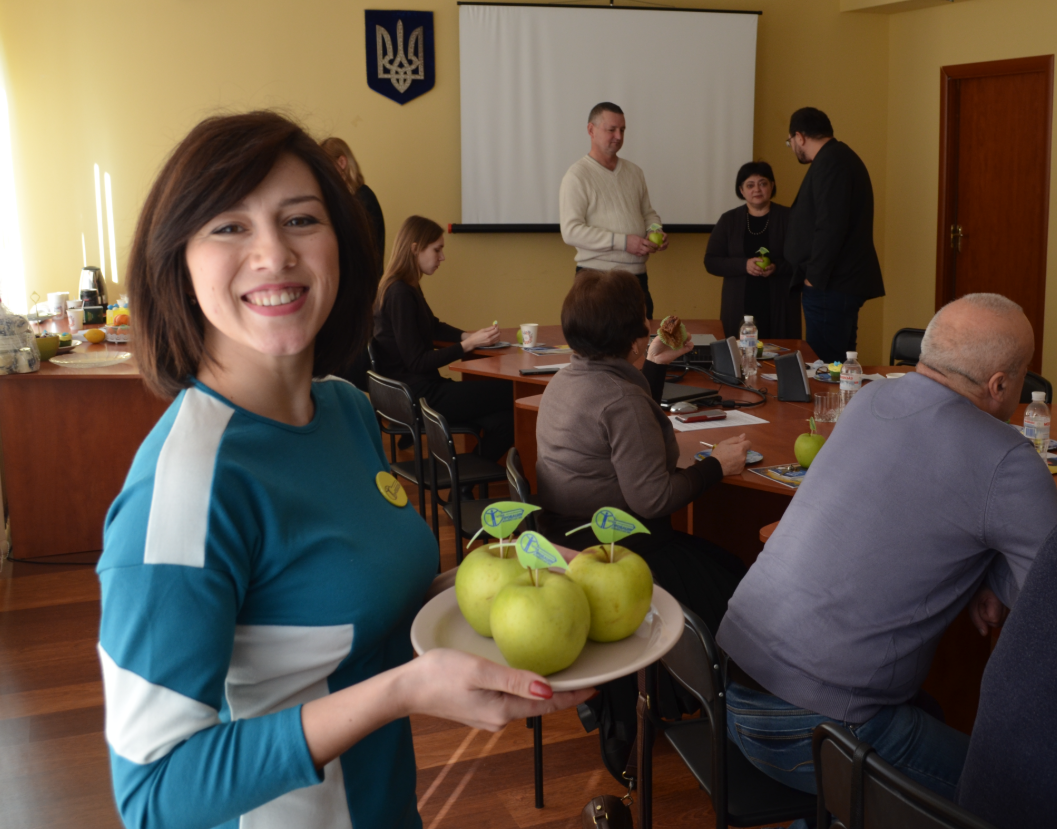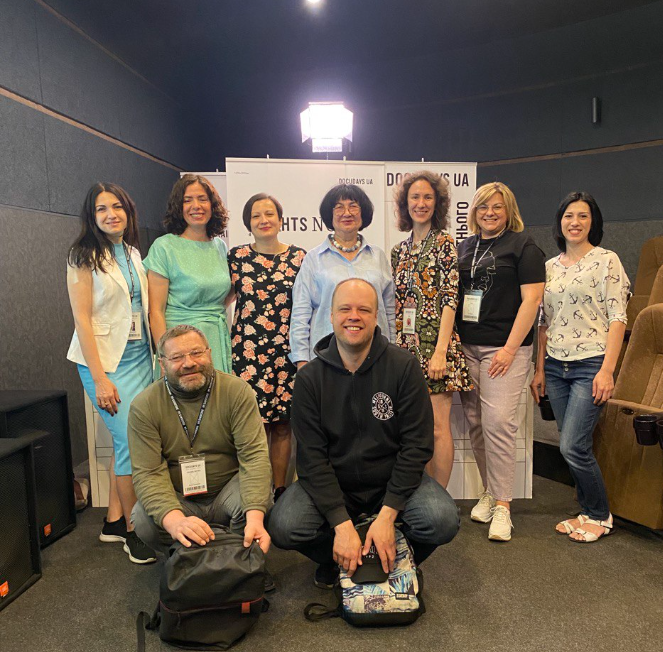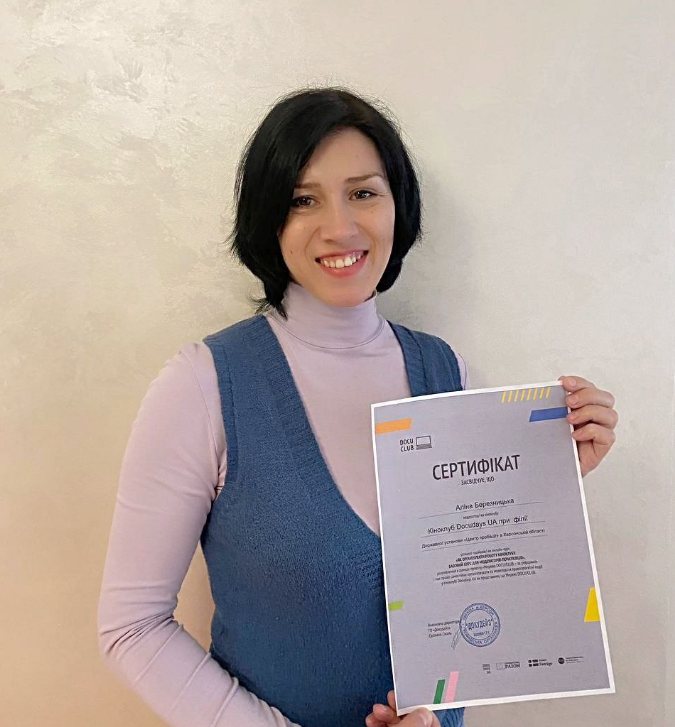
As of today, 928 convicted individuals are registered with the probation units of the Kherson region. These individuals are serving sentences for various offenses and violations of the law that do not involve imprisonment, such as petty theft, disorderly conduct, drug use, and collaborationism.
Reprinted from the Vgoru Media Platform.
The primary task of probation officers is to assist their clients in rehabilitation, help them overcome criminogenic habits, and reintegrate them into a law-abiding life. This is a challenging mission under normal circumstances, and the proximity to the front line, along with ongoing shelling, makes it even more difficult.
Alina Bereznytska, specialist with the consolidated branch of the Probation Center serving the Mykolaiv, Donetsk, Luhansk, and Kherson regions, explains that only 26 staff members are currently working with all these convicted individuals. The reasons for understaffing are clear: many of her colleagues are serving in the Armed Forces of Ukraine or have gone abroad. As a result, the current workload for each probation officer in the Kherson region averages 39 probation clients.
“There used to be more staff, but it’s quite difficult to perform our duties remotely,” Alina admits. “There are many areas of responsibility, and the workload keeps growing — but we are ‘universal soldiers,’ and we can handle it all. We are constantly looking for new ways to effectively work with our clients. In the units located in the city of Kherson and the towns of Velyka Oleksandrivka, Novovorontsovka, and Vysokopillya, we engage partner organizations to provide assistance and services to our convicted clients. However, in places like the town of Bilozerka and the city of Beryslav, which are under constant shelling, the situation is much more complicated. We have many partners there, but they all operate remotely, and due to the security situation, it is extremely difficult to provide services in person.”

A screening for the colleagues in the pre-war Kherson
Thus, assistance to probation clients is mostly provided remotely, via phone calls or messaging apps. Naturally, motivating individuals to change their behavior or lifestyle from a distance is extremely challenging. “When you see a person, look them in the eye, and observe their reactions, it makes the work more effective. It’s hard to encourage someone to work on themselves over the phone. To be honest, this usually works only with those who are already willing to change,” says Alina Bereznytska.
“But we often repeat that constant dripping wears away the stone. Without unnecessary complaints, we explain to our clients that they must take responsibility for their offenses and fulfill the obligations assigned by the court. If these obligations are not met, the punishment may be replaced with a harsher one. Helping even one person is already a decent result. My colleagues and I do everything we can to achieve this.”
Several years ago, during her search for effective methods to support and influence probation clients, Alina Bereznytska discovered a new tool — documentary films about human rights. She says that such films help her clients become aware of their own problems and encourage them to seek a different path in life.
“It is not always possible to persuade a convicted person to go on the path toward change. It’s a long process. Unfortunately, we often hear from probation clients that they have no problems. This is their way to ‘shut themselves off’ from us,” the specialist notes. “Documentary films allow them to view their life situations from a different perspective, and they start opening up emotionally during the discussions that follow the screenings. This produces the desired result.”
The Docudays UA film club at the Kherson branch of the Probation Center was established in 2020. Along with over 480 other film clubs, it is part of the DOCU/CLUB Network, which operates across the country.

The DOCU/CLUB Network team at the Docudays UA International Film Festival
Alina Bereznytska has been heading the film club since its foundation. She recalls that, in the beginning, she did not fully grasp the unique power and societal impact of documentary films. It was a completely new tool for her. However, together with her colleagues Tetyana Lizunova and Kostiantyn Nazarenko, heads of probation units in currently occupied areas of the Kherson region, they gradually began working with their clients.
“These films are inspiring,” says the head of the film club. “You know, at first, I thought our clients wouldn’t understand what was happening on the screen. But we discuss the films with them, ask them questions, and from their responses, I can see just how valuable these screenings are.”
Film club sessions are informal events, as the moderators’ primary goal is to use the film's storyline to encourage participants to reflect on their own life situations. “All the documentary films in the DOCU/CLUB Network collection are in some way related to the theme of human rights. Besides this, the films depict real-life challenges and personal stories that often resonate with our probation clients. This prompts them to draw conclusions and realize that there are alternative ways to respond to life’s challenges. If someone in a film has managed to overcome a problem, they start to believe they can do it as well,” Alina Bereznytska shares.
Probation clients need this support. Unfortunately, due to the war, active engagement through documentary film discussions had to be put on hold. During the occupation of the Kherson region, the primary focus shifted to protecting human lives. Most probation officers managed to evacuate to Ukrainian-controlled territory and continued performing their duties at units in other cities in the country. The film club team also had to leave Kherson. Tetyana Lizunova began working at the Kharkiv branch, while Kostiantyn Nazarenko is currently based in the Poltava region. After living under occupation for six months, Alina Bereznytska was able to evacuate with her family to Kyiv.

Alina Bereznytska with the certificate of a Docudays UA film club moderator
Nevertheless, distance proved to be no obstacle for screenings. “We would gather viewers online and invite experts and partner organizations. We held screenings and shared our experiences with colleagues,” Alina recalls. “Unfortunately, due to constant shelling and prolonged power outages in the Kherson region, it is currently impossible to organize documentary film screenings for convicted individuals there. Meanwhile, I am working for my colleagues.”
In the two years since the film club resumed its activities, the moderator has held 23 documentary film screenings for her colleagues and probation clients in the Kharkiv region. These monthly sessions have already become a valued tradition. They not only raise public awareness and knowledge about human rights, but also contribute to improving the team’s mental well-being.
“No matter the distance between us, during a film screening we can come together online, watch various films, discuss them in a friendly atmosphere, and even engage in games and exercises to support the psychological well-being of the staff,” shares the head of the film club. “I create an informal setting so that colleagues can see one another and be reminded that they are part of a team. This is important for fostering unity and ensuring effective cooperation.”
Throughout the entire operation of the film club, its moderator has never screened the same film twice: “We have such a vast collection! I really want to watch all of them with my colleagues and clients. Currently, I prefer films about peaceful life that help my viewers momentarily escape the harsh realities of war.”
The Docudays UA documentary film club at the Kherson branch of the Probation Center continues its work even under such difficult conditions. Although it is currently not possible to gather probation clients for screenings and discussions, the club significantly influences the process of working with them.
“For the time being, we are not operating in our usual, traditional format, but our colleagues share with probation clients the information, ideas, and advice they obtain during the film club meetings,” says Alina Bereznytska. “We analyze the plots of the films and the ways in which the protagonists approach problem-solving, and then convey these insights to our clients. This use of documentary film in probation work is truly inspiring. I look forward to every new meeting with my colleagues.”
She concludes: “Our priorities are the safety of people and the chance of returning back to our homes. We can persevere through everything else. In the meantime, we do what we can to perform our duties in the best possible way. That’s the truth.”
The development of the DOCU/CLUB Network is funded by the Embassy of Sweden in Ukraine and the National Endowment for Democracy (NED).
The opinions, conclusions or recommendations do not necessarily reflect the views of respective governments or charitable organizations of these countries. The author(s) of this publication are solely responsible for its content.



